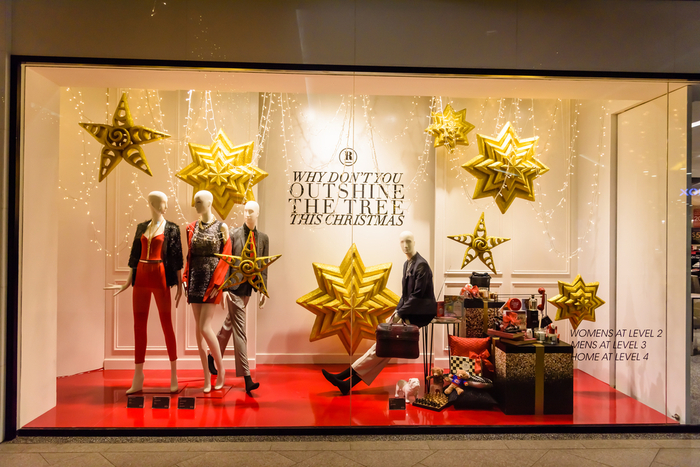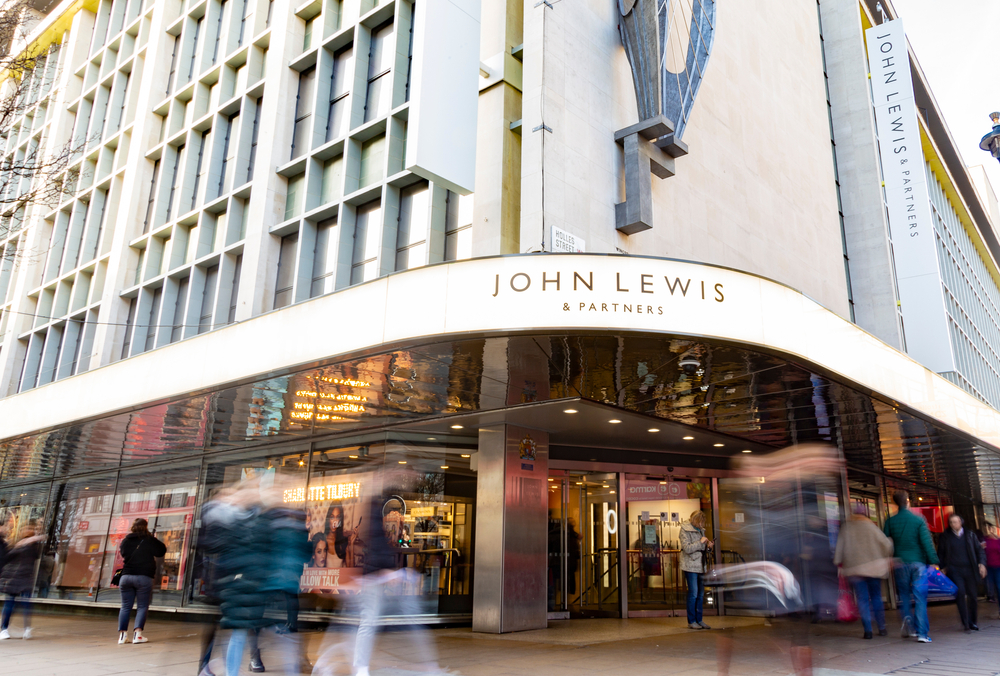With the continued uncertainty surrounding the retail industry due to Covid-19, customers may be shopping for Christmas earlier this year than ever before. On the flipside, with the majority of the UK population now in lockdown, it’s probable that in-person Christmas shopping on the high street may be delayed dramatically.
With Wales in lockdown until next week and England about to enter a month-long one, while the whole of the UK is deep in a second wave of soaring Covid infection rates, it’s not yet certain that Brits would be able to see loved ones in person over Christmas. This could prompt many consumers to spend their time shopping for gifts online instead,
Gifting is undoubtedly a big driver of sales at Christmas, and this year customers will be looking for ways to send gifts directly to loved ones – especially if there is chance the second lockdown in England could be extended beyond December 2. Whether or not a business offers direct-to-recipient options such as gift wrap and messaging will play a big part in consumer decision-making. Meanwhile, many retailers are already offering Christmas products early on to accommodate.

John Lewis became one of the first retailers this year to open its Christmas shop after it found that searches for festive products had nearly quadrupled compared with last year.
The retailer said the online store – which opened in August – selling lights, trees and hampers, had opened 10 days ahead of last year, as shoppers on furlough or working from home were already thinking about how to decorate their homes in December.
“It looks as if people are looking forward to and planning for it earlier than ever this year,” John Lewis Christmas buyer Jason Billings-Cray said at the time.
“Christmas celebrations mostly take place in our homes and we have seen how the lockdown has made people think more about their homes, so perhaps we shouldn’t be surprised that people are already thinking about how they will decorate their homes this Christmas.”

Meanwhile, earlier this month Marks & Spencer said searches for Christmas products on its website had skyrocketed by 80 per cent year-on-year.
In late October, the BRC launched a national advertising campaign, ‘Shop early, start wrapping, enjoy Christmas’, urging people to spread demand and avoid putting last-minute pressure on retailers’ delivery networks.
Retailers are arguably at an advantage when offering Christmas products early as customers may have a mental budget of what they will spend for the holidays.

The “Christmas Creep” phenomenon can be traced back to the mid-1980s and describes how retailers incrementally put out their holiday merchandise onto shelves at an early date. In other words, instead of putting everything out in large quantities, retailers slowly start adding holiday goodies to their shelves and allow it to “creep” into consumers’ shopping experience.
With Covid-19 severely disrupting supply chains, there is no doubt that getting the right Christmas stock – which is always a challenge for retailers – will be tougher this year.
VoucherCodes commercial director Angus Drummond told Retail Gazette that online sales are predicted to take a bigger share of Christmas spend this year than ever before. However, he said offline retail sales were still expected to make up 67 per cent of Christmas sales.
Despite this prediction, it remains unclear what the outcome may be, especially since non-essential retailers are expected to temporarily shut for a month from November 5 in England.
“Whilst some of us may shudder at the sight of Christmas displays before Halloween, it’s a natural move for stores to start showcasing their Christmas stock earlier this year, ensuring people have ample time to prepare if stores are forced to shut in the coming weeks,” Drummond said.
“That said, with many consumers naturally feeling anxious about shopping on the high street this Christmas, it is essential that retailers place more focus on their online offering this Christmas season.”
VoucherCodes also expects online spending to grow by £5.6 billion in 2020, equating to 33 per cent of the overall spend for the festive season.
“It is essential that retailers place more focus on their online offering this Christmas season”
“Our latest Shopping for Christmas 2020 report predicts UK consumers are set to spend £84.4 billion in the six weeks leading to Christmas, £1.3 billion more than 2019,” Drummond said.
“So as well as displaying Christmas merchandise earlier in-store, it’s essential that retailers also reflect this strategy in their online offering; enticing shoppers with great offers to ensure they can maximise profits during such a challenging year for retail.”
Arguably, the nature of the pandemic is spreading uncertainty and making Christmas a major focal point. Retailers are concerned about the potential for lockdowns and forced closures while consumers are worried about the ability to have a family Christmas. For many consumers, and particularly small and independent retailers, there is the additional uncertainty concerning employment security and business continuation.
Leigh Sparks, retail studies professor at University of Stirling said this uncertainty has led to many retailers to consider an early start to their Christmas trading season, and for consumers to bring their purchases forward in case things take a turn for the worse.
“For retailers making sales now, especially if they can achieve full price and strong margins, makes sense,” he told Retail Gazette.
“It protects their position and locks in the sale. The same is true for consumers who have then the certainty of having obtained the products they want.
“The difficulties with this are that Black Friday and the general retail desire to boost sales may lead to margin erosion and consumers throughout then period may well be concerned about the prices they are paying.
“Making sales and purchases early is not risk free, but does mitigate the risks of lockdown later. For food retailers and their products there are issues around short shelf life, product availability and what demands consumers will actually have.”
Retail expert Nelson Blackley said there was lots of evidence to suggest Christmas 2020 was beginning earlier than ever before.
“Amazon have started their annual ‘Black Friday’ deals almost a month before the event at the end of November,” he told Retail Gazette.
“Selfridges opened its Christmas shop 75 days before Christmas and St. Ives had their Christmas lights switch-on October 28, a full month earlier than usual.
“A survey carried out by OnePoll for John Lewis and published at the end of October highlighted that 60 per cent of shoppers planned to complete their Christmas shopping by the end of November.
“John Lewis also reported that two weeks ago, sales of Christmas baubles were already up 120 per cent year-on-year.
“Making sales and purchases early is not risk free, but does mitigate the risks of lockdown later”
“The evidence around an anticipated increase in online Christmas shopping this year is also compelling.
“Amazon created around 10,000 new jobs in 2020 to meet the upsurge in demand and the Royal Mail said it is creating 30,000 additional, temporary Christmas jobs in anticipation of a surge in online shopping volumes between now and the end of the year.”
However, Blackley said this year’s Christmas was unlikely to see record total sales, given the huge economic uncertainty, low consumer confidence and job insecurity as the furlough scheme ends.
“This does not even start to consider the spectre of a ‘no-deal exit’ from the European Union at the end of December,” he explained.
“Although this has been almost overlooked recently, it has the capacity to cause additional significant shock and disruption to many sectors, including retail, if a UK trade deal isn’t agreed in the next few weeks.”
Blackley added that retailers should focus on launching Christmas shopping events that are not just centred around discounted products for a competitive edge.
“Creating inspirational shopping experiences is a better strategy, as it’s more likely to foster brand loyalty,” he said.
Retailers have been desperate to find some certainty in 2020 and Christmas arguably provides that opportunity. The so-called Golden Quarter – which incorporates both Christmas and Black Friday – will be even more critical this year. All retailers will be looking to maximise every opportunity to drive sales.
Despite the remaining uncertainty for the retail industry as new restrictions come in to force, it’s clear that the customer is prepared. Whether Christmas sales shift online or not, one thing is clear – if customers have something particular on their list, this is not the year to leave it until the last minute to buy.
Click here to sign up to Retail Gazette’s free daily email newsletter


















